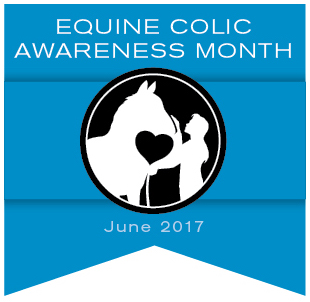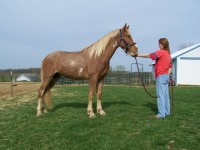
Author: Lisa Spurrier At the age of two, my Tennessee Walking Horse, Shock, colicked. I couldn’t believe my eyes as I went into the barn for lights out and found him down and up against the side of the stall in a very unnatural position. I thought he was dead. I screamed his name and threw open the door. He got up, but I could tell he was in trouble. [ Read More ]
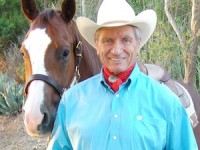
“The Crusade Against Equine Colic presented by SUCCEED® is a movement empowering all horse people to learn how to reduce our horses’ risk for colic – and to share that knowledge with fellow equestrians. The goal is simple: to save as many horses as possible from deadly and debilitating bouts of equine colic by educating and empowering you, horse owners and lovers. “I support this effort to save our horses [ Read More ]
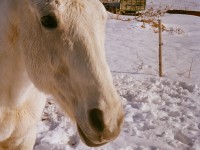
Author: Shelly Edson It’s a horseperson’s worst nightmare. Just hearing the word “colic” makes many of us cringe because it can mean so many things. Perhaps you’ve had a horse colic in the past and they came out of it just fine in a day or two with no lasting affects…or maybe it was a more serious condition that required surgical intervention for the horse’s survival. And even worse, having [ Read More ]
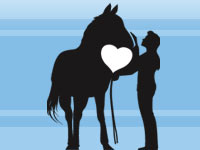
Author: Tracey, Top Flite Farm I met A Clever Way To Go, aka C.Bean as a two year old. She was a young race horse and I had just been hired to breeze her for her owner. The moment I met her something passed between us and I knew my life would never be the same again. C.Bean raced for 2 years, and when her owner finally decided to sell [ Read More ]
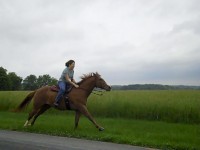
Author: Jill Collins Rusty’s story goes back three years when he was 18 years old. Having always been a healthy horse with what I would consider a ‘strong belly’, Rusty had never exhibited any clinical signs of colic in all the years I had owned him to that point. One day, I got a call from the barn and was told Rusty looked uncomfortable and was not interested in eating. [ Read More ]
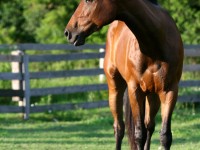
Author: Anonymous One Sunday morning I was on my way to work and I got the phone call no horse owner wants to get. “Uhh, T is colicking, you better get up here as soon as you can.” Called work saying I just couldnt make it. They are not horse people and didn’t understand, and I risked getting fired. I didn’t care. That car ride up to the barn was [ Read More ]
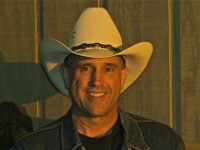
Author: Geoff Tucker, DVM, The Equine Practice Colics could be avoided in my opinion if we treated horses like horses. Unfortunately it is almost impossible to do this today. With horses housed behind fences in small paddocks and overcrowded in large barns, the ideal environment is sacrificed for our convenience. Let’s look at only one aspect of this confinement that directly affects the horse and his ability to maintain a [ Read More ]

Author: Elaine Juska Joseph, Cedar Knoll Farm Duke and Diesel is one of Cedar Knoll Farm’s main carriage teams (we currently have nine Percherons). Not only are they a top-notch commercial team of greys used for weddings and carriage rides, but we also use them for farming, such as plowing, haying, disking and logging. They are an impeccable, hard working and well-matched team, and without a doubt the one team [ Read More ]
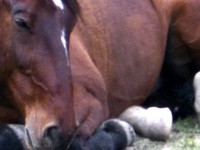
We generally consider colic to be a spasm in the colon linked to gas build up, blockages, and twists in the equine gut. In most colic cases, the vets have no idea what caused the issue. There are several factors, especially related to feeding and management, that research suggests may be major contributors to colic.
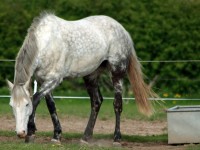
By the time a horse is refusing food, biting its sides, or rolling in pain, you already have serious problem. At that point, you’re in crisis mode working to minimize the damage. But what if you could recognize a horse at risk for colic and address the issue before it progressed that far?














